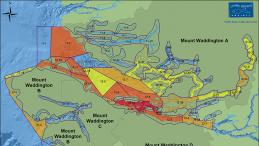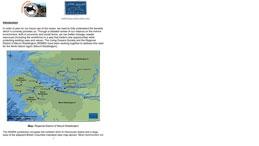New study shows that North Island economy depends on a healthy ocean
SOINTULA, B.C. –-Almost 28 percent of the economy of the Regional District of Mount Waddington is dependent upon a healthy ocean, according to new research commissioned jointly by Living Oceans Society and the Regional District of Mount Waddington. The study undertaken by GS Gislason and Associates Ltd. uses data from 2009 and interviews with local residents to measure both the direct contribution of marine industries to local communities and where in the regional waters these activities occur. This unusual approach allows for a deeper understanding of the importance of the ocean environment to the well being of Mount Waddington residents.
“By demonstrating a linkage between the economic livelihoods of people, businesses and communities to a healthy ocean, we can better prepare for planning processes such as the Pacific North Coast Integrated Management Area (PNCIMA) process and push for fairer levels of rural employment that better reflect the contribution of our marine resources to the B.C. economy,” says Neil Smith from the Regional District of Mount Waddington.
This study shows that the ocean is integral to the economy of northern Vancouver Island. This will help inform economic planners, community leaders and businesses of the need to conserve the ocean while developing economic plans that help communities flourish.
While salmon aquaculture is a primary source of income in the region at $3.3 million in wages, the results of this study show that the processing of farmed and wild fish in the regional seafood processing plants is the greatest source of local income, with $13.7 million in wages going to 340 residents.
Marine recreation and sport fishing are almost equally valuable, with $11.8 million dollars in wages employing 315 residents combined. These figures highlight the region as a world class tourism and recreation destination for kayaking, scuba diving, surfing and hiking to beachcombing and nature viewing. Add the value of commercial fishing and these three sectors, which rely directly on healthy oceans, provide the highest combined value at 425 person-years of employment.
“These results reinforce the work we are doing with Marine Harvest Canada to measure the feasibility of closed containment systems, which could pave the way to moving the salmon farms out of the water,” says Jennifer Lash Executive Director of Living Oceans Society. “Closed containment will help ensure the marine environment stays healthy for all sectors, while maintaining local jobs in both salmon farming and processing.”
“Because seafood and marine recreation are so dependent upon healthy marine ecosystems, this really brings home the importance of planning for our coast,” Lash says. “Economic development initiatives in this region must reflect the need to protect the ocean. Current and future generations depend on it."
-30-


